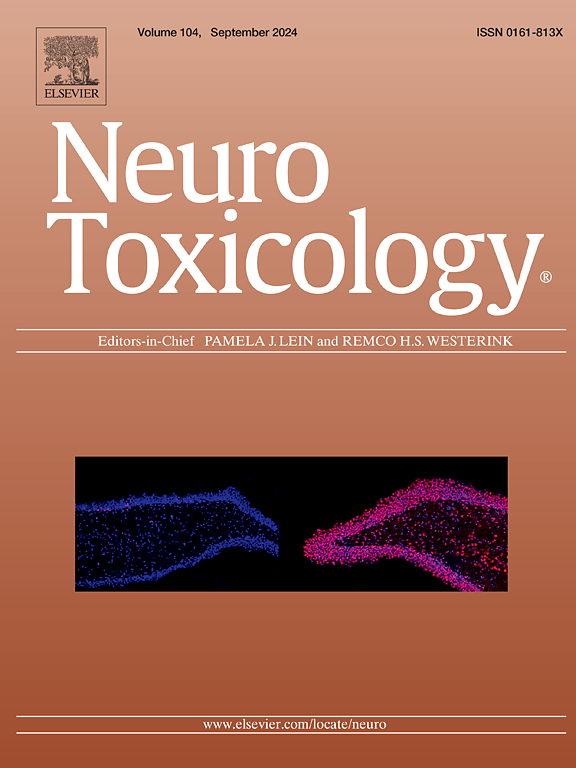健康的生活方式会减少邻苯二甲酸盐与抑郁症的关联吗?一项横断面研究
IF 3.9
3区 医学
Q2 NEUROSCIENCES
引用次数: 0
摘要
邻苯二甲酸酯的普遍存在引起了人们对包括抑郁症在内的健康后果的担忧。关于改变生活方式在减轻邻苯二甲酸酯不良反应中的作用的知识缺乏。我们的目的是评估生活方式与尿邻苯二甲酸酯代谢物(UPMs)对抑郁症的相互作用。纳入2011-2018年全国健康与营养调查中年龄≥ 20岁的3588名参与者。我们使用多元逻辑回归模型和贝叶斯核机回归模型来评估upm(个体或混合)和生活方式与抑郁症的关系。在总体人群和维持不良生活方式的参与者中,观察到个体upm及其混合与抑郁症的正相关。在生活方式健康的参与者中没有发现这种联系。观察生活方式与MECPP(交互作用P = 0.028)、ΣDEHP(交互作用P = 0.087)对抑郁的交互作用。此外,在常见的生活方式组合中,健康水平的吸烟、饮酒和体育锻炼对抑郁症的影响最大。综上所述,我们观察到upm与抑郁风险呈正相关,以及生活方式和upm对抑郁的相互作用。我们的研究结果表明,健康的生活方式可能会削弱邻苯二甲酸盐暴露对抑郁症风险的不利影响。本文章由计算机程序翻译,如有差异,请以英文原文为准。
Does healthy lifestyle attenuate the associations of phthalates with depression? A cross-sectional study
Phthalates have raised concerns on health outcomes including depression, due to its ubiquity. Knowledge is lacking on the role of modifiable lifestyle in attenuating phthalates’ adverse effects. We aimed to evaluate the interaction effects of lifestyle with urinary phthalate metabolites (UPMs) on depression. A total of 3588 participants aged ≥ 20 from the National Health and Nutrition Examination Survey 2011–2018 were involved. We used multivariate logistic regression models and Bayesian Kernel Machine Regression models to evaluate the associations of UPMs (individual or mixture) and lifestyle with depression. Positive associations of individual UPMs and its mixture with depression were observed in total population and participants maintaining an unfavorable lifestyle. No such association was found in participants with a healthy lifestyle. Interactions between lifestyle category with MECPP (P for interaction = 0.028), and ΣDEHP (P for interaction = 0.087) on depression were observed. Additionally, smoking, alcohol consumption and physical activity in healthy levels showed the greatest effect against depression among the common lifestyle combinations. In conclusion, positive associations of UPMs with depression risk, and interaction effects of lifestyle and UPMs on depression were observed. Our findings indicate that healthy lifestyle might weaken the adverse effects of phthalate exposure on depression risk.
求助全文
通过发布文献求助,成功后即可免费获取论文全文。
去求助
来源期刊

Neurotoxicology
医学-毒理学
CiteScore
6.80
自引率
5.90%
发文量
161
审稿时长
70 days
期刊介绍:
NeuroToxicology specializes in publishing the best peer-reviewed original research papers dealing with the effects of toxic substances on the nervous system of humans and experimental animals of all ages. The Journal emphasizes papers dealing with the neurotoxic effects of environmentally significant chemical hazards, manufactured drugs and naturally occurring compounds.
 求助内容:
求助内容: 应助结果提醒方式:
应助结果提醒方式:


